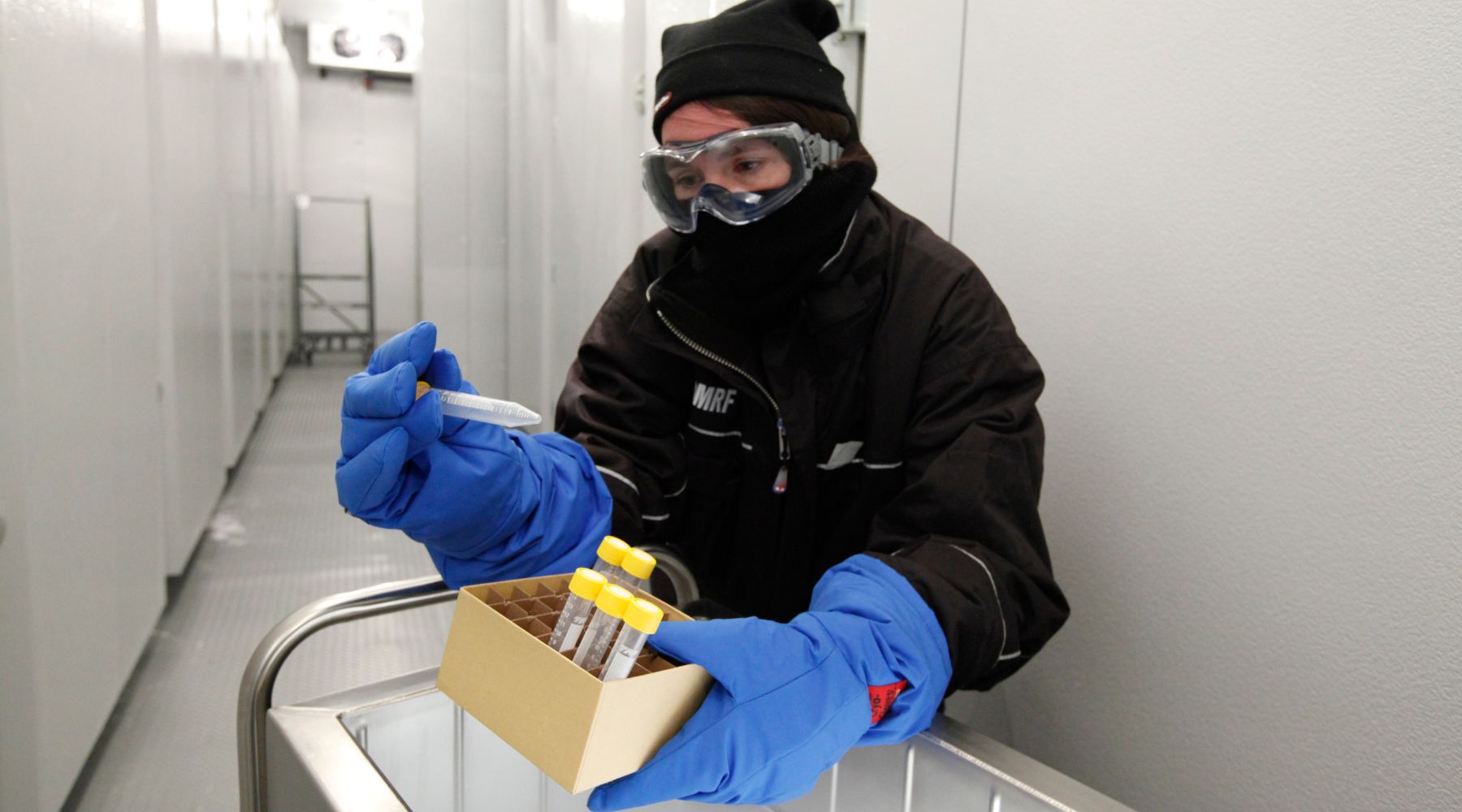The National Institutes of Health has awarded the Oklahoma Medical Research Foundation $4.3 million to continue serving as a hub for collaborative rheumatic disease research.
Since 2007, the OMRF-based Oklahoma Rheumatic Disease Research Cores Center has provided infrastructure to support clinical research to improve patients’ lives for some of the diseases that are the greatest causes of disability in the U.S.
Rheumatic disease is an umbrella term for arthritis, lupus, Sjögren’s and other disorders that affect the joints, tendons, ligaments, bones and muscles. Nearly 1 in 3 American adults are affected by one or more rheumatic conditions.
“The ORDRCC is a national resource that provides patient samples with partnered clinical data for various studies, but it’s far more than that,” said OMRF Executive Vice President & Chief Medical Officer Judith James, M.D., Ph.D. “It also gives younger scientists access to cutting-edge technologies partnered with skilled personnel, with the goal of improving diagnosis and treatment for people with rheumatic conditions.”
In addition to the biorepository, the ORDRCC funds a mentoring program through which 26 established scientists assist younger researchers, many outside Oklahoma. Through pilot projects, early-career scientists develop writing skills to apply for competitive grants and draft research papers that showcase their work. Nearly 300 research journal papers have resulted from these resources, James said.
“Often, as a junior investigator struggles to establish an independent lab, they don’t have access to patient samples, especially those that have been as well characterized as ours, partnered with cutting-edge technologies,” said Joel Guthridge, Ph.D., associate director of the ORDRCC and director of the grant’s phenotyping core.
People nationwide who volunteer for studies on conditions like rheumatoid arthritis or lupus may consent to have their blood and tissue samples, patient-reported outcomes, questionnaire responses, disease activity measures, and other information stored in the ORDRCC for future study. OMRF and other ORDRCC researchers then analyze those samples at the molecular level.
“The biorepository has allowed us to maximize what patients have entrusted us with,” James said. “Those samples have helped us discover how genetic associations and environmental factors contribute to lupus, Sjögren’s disease and other conditions.”
OMRF physician-scientist Matlock Jeffries, M.D., said the ORDRCC funding he previously received made possible an initial study aimed at using biological signs to predict osteoarthritis progression.
“I can’t overstate the impact of the ORDRCC for fostering the development of cutting-edge science in Oklahoma,” Jeffries said. “The funding came at a pivotal time in my career, allowing me to generate key preliminary data that resulted in my first large NIH grant.”
The five-year grant, No. 2P30AR073750-06, was awarded by the National Institute of Arthritis and Musculoskeletal and Skin Diseases, part of the NIH. In addition to James, OMRF physician-scientist Joan Merrill, M.D., and scientist Joel Guthridge, Ph.D., lead projects funded through this grant.



